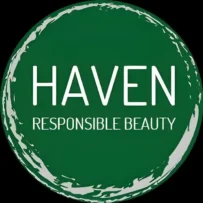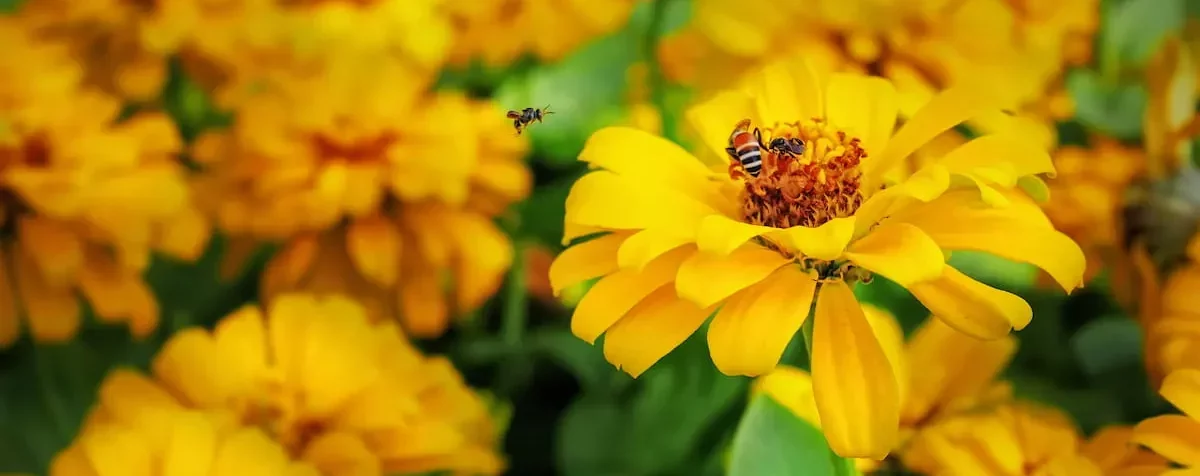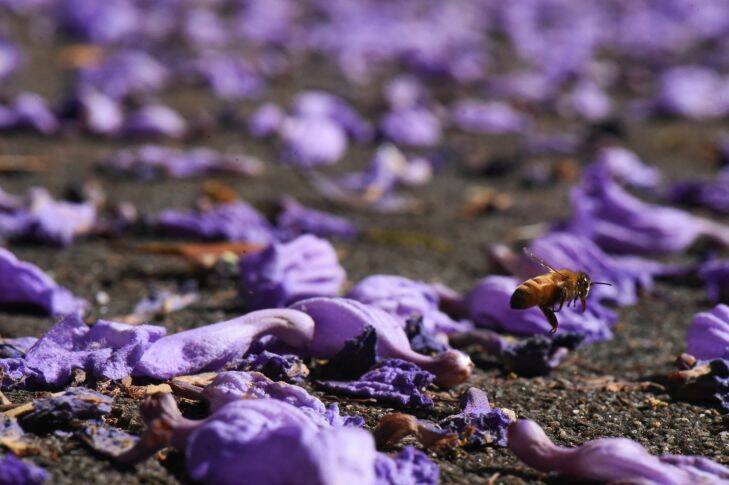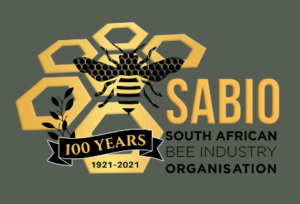The Decline of Honeybee Populations: A Global Crisis
From Playful Days to Growing Concern
In 1978, my family moved to Magalieskruin, Pretoria. I was just six years old. Our new home was surrounded by expansive gardens and tall Jacaranda trees. Every spring, these trees blossomed with vibrant purple flowers. It became a magical playground where my sister and I spent countless hours. Amidst the joy, honeybees buzzed busily, collecting nectar. Occasionally, they would remind us of their presence with a sting.
A Troubling Absence Today
In September 2023, I walked through Lisdogan Park near the Union Buildings in Pretoria. The Jacaranda trees still stand tall. However, I noticed something alarming—there were almost no honeybees among the flowers. This absence stirred memories of past discussions about bee population decline. It also sparked a deep interest in melittology, the study of bees.
The Varroa Mite: A Devastating Threat
The Varroa mite, introduced in the late 1990s, has wreaked havoc on bee populations. Beekeepers report up to 90% losses. Wild colonies are nearing extinction. This crisis extends far beyond South Africa. Farmers in the U.S., China, and across the globe face the same issue. The decline in bees threatens food security and biodiversity. Without these essential pollinators, ecosystems would collapse.
A Global Crisis
The devastation caused by the Varroa mite is just one factor. Pesticides and climate change also contribute significantly. As a result, the loss of honeybees is accelerating. This global problem affects us all. From agriculture to skincare, the ripple effects are widespread. In response, many eco-conscious solutions have emerged, such as natural makeup brands and organic beauty products. These initiatives promote sustainability and contribute to protecting pollinators and the environment. The urgency to act has never been clearer.
Bees are essential for pollinating many plants, including those used in the production of natural ingredients in cosmetics. Ingredients like lavender, chamomile, and calendula, celebrated for their soothing properties, rely heavily on bees for their existence. The decline in bee populations directly impacts the availability and quality of these plants, threatening the entire beauty industry and the vegan beauty products consumers cherish.
Despite these alarming trends, there are glimmers of hope. Awareness is rising, and conservation efforts are gaining momentum. Organizations such as the South African Bee Industry Organization and the Endangered Wildlife Trust are working tirelessly to protect and restore bee populations. Individuals can contribute by creating bee-friendly habitats, supporting clean skincare brands, and advocating for reduced pesticide use.
The narrative emphasizes that every action counts. The future of bees—and our own—depends on our collective efforts to safeguard these irreplaceable allies. As I reflect on my childhood memories filled with buzzing bees, it becomes clear that protecting these creatures is vital not only for the beauty industry but for the health of our ecosystems.
How You Can Help Save the Bees
1. Create Bee-Friendly Habitats:
Plant native flowers that bloom at different times of the year to provide a steady food source for bees.
2. Support Organic Farming:
Choose organic products that don’t use harmful pesticides, benefiting both the environment and bee populations.
3. Reduce Pesticide Use:
Advocate for and practice methods that minimize chemical use in gardening and farming.
4. Spread Awareness:
Educate friends and family about the importance of bees and how they impact the beauty industry and our ecosystems.
5. Purchase Sustainable Products
: Support brands that prioritize bee conservation and sustainable sourcing in their beauty products, including eco-friendly cosmetics and ethical beauty practices.
In conclusion, the plight of bees is a poignant reminder of the interconnectedness of all living beings. The survival of bees—and ultimately our own—depends on our commitment to preserving the delicate balance of nature. By fostering bee-friendly environments and supporting sustainable skincare solutions we can ensure a thriving ecosystem that benefits everyone. Let’s act now to protect these essential pollinators for the sake of our planet and future generations.
As we face the alarming decline in bee populations due to factors like the Varroa mite, habitat loss, and pesticide use, it’s clear that every small action can lead to significant change. The survival of bees is crucial for the natural organic and vegan beauty product industry, as well as for the health of our ecosystems. Together, we can create a brighter future for both bees and humanity. Let’s embrace this mission with empathy and urgency, ensuring that the buzzing of bees continues to harmonize with the laughter of children for generations to come.
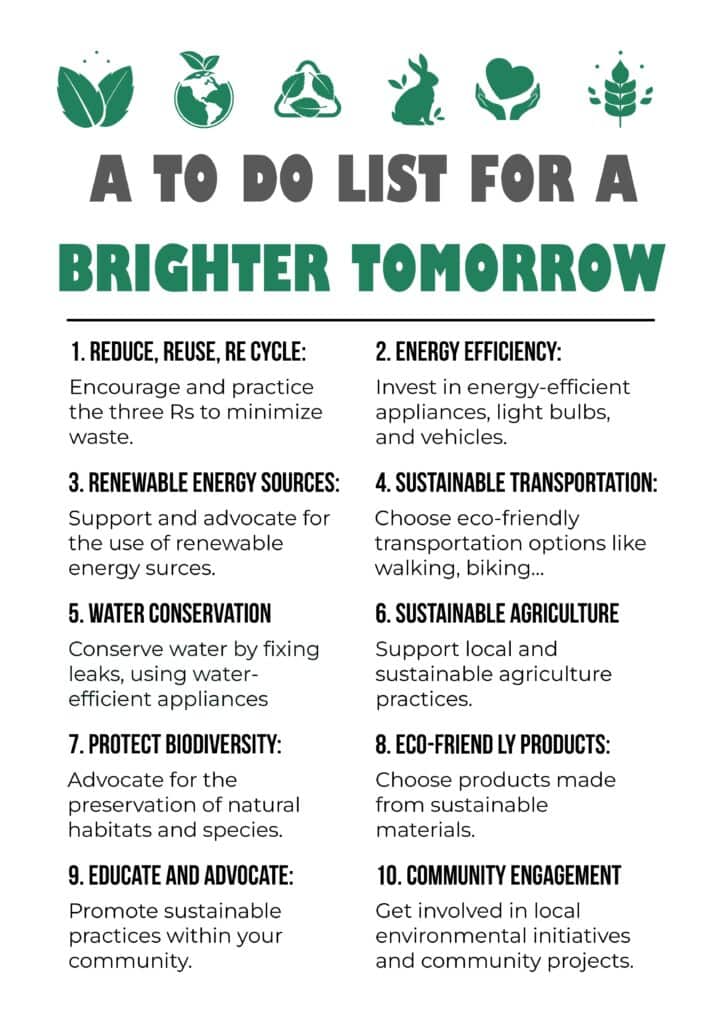
Ethical Considerations
These products support animal welfare by avoiding animal-derived ingredients and animal testing. They often also adhere to ethical business practices, such as fair trade and equitable treatment of employees.
Environmental Impact
The production processes for these products typically have a much lower environmental footprint, from reducing pesticide use through organic farming to avoiding animal byproducts and promoting sustainable and responsible sourcing practices.
Health & Safety
By avoiding harmful chemicals, synthetic fragrances, parabens and other toxic ingredients, these products offer a safer option for personal care, reducing the risk of adverse reactions and contributing to long-term health benefits.
The Role of Bees in Eco-Friendly Cosmetics
How Bees Contribute to Vegan Beauty Products
Bees play a crucial role in producing eco-friendly cosmetics by pollinating plants that provide key ingredients. Although beeswax and honey aren’t vegan, bees help cultivate botanical skincare ingredients like essential oils and floral extracts. These ingredients are essential for cruelty-free beauty products and vegan skincare products.
The Shift to Ethical Beauty Practices
Additionally, the beauty industry embraces ethical beauty practices. It shifts to plant-based beauty brands that avoid animal-derived ingredients and promote sustainable skincare solutions. Bees help grow plants for vegan beauty products, including radiant skin solutions and hydrating makeup options. For example, their pollination supports plants used in organic beauty products and natural makeup brands.
The Impact of Bees on Eco-Conscious Beauty
Moreover, the demand for eco-conscious beauty packaging and inclusive shade ranges depends on the preservation of ecosystems that bees sustain. Consequently, supporting vegan makeup brands ensures biodiversity protection. In short, choosing vegan and cruelty-free brands directly helps protect the environment and supports ethical makeup brush use.
Conclusion: Supporting Clean and Sustainable Beauty
In conclusion, bees are key to the future of clean beauty brands and sustainable beauty products. Therefore, supporting brands that prioritize vegan and cruelty-free cosmetics promotes a more eco-friendly, ethical, and sustainable future.
